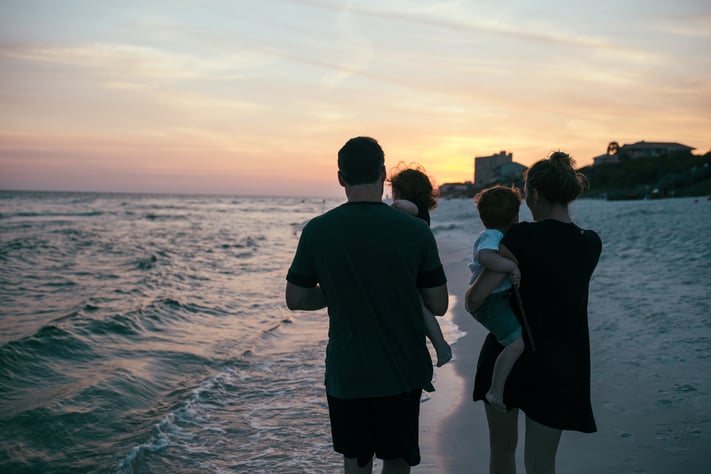 When I am facilitating Family Program sessions I often ask participants to think of a family affected by addiction like a mobile floating over a child’s crib. When you imagine a mobile, there are a few things that instantly come to mind. You’ll see a bunny, bear, frog, and bird: rotating around and helping the mobile to maintain balance. There’s often quiet music playing in the background.
When I am facilitating Family Program sessions I often ask participants to think of a family affected by addiction like a mobile floating over a child’s crib. When you imagine a mobile, there are a few things that instantly come to mind. You’ll see a bunny, bear, frog, and bird: rotating around and helping the mobile to maintain balance. There’s often quiet music playing in the background.
I then ask them to imagine each of their family members hanging from this mobile. What are the roles that everyone takes on in order to try to keep the mobile moving forward to try and create a balance, especially when there’s more than likely that at least one of the points on the mobile is bouncing, rather than moving along smoothly? The lullaby in the background is skipping beats, creating an environment more conducive for slam dancing than waltzing.
One family program participant described living with addiction as a never ending daily dose of often destructive and always confusing behavior that kept coming around and around. When I ask, “Would you like to get off now? Would you like some relief?” family members often reply with “Yes! Of course we would!” Family members would like less anxiety, more peace, and some serenity and security. But, how is that possible when the person you love is struggling? And, how is that possible when you’ve tried everything that you know how to do, but nothing has brought you the outcome you’ve desired?
For several thousand days now, I’ve been a student of the wisdom of the text of Alcoholics Anonymous. The Big Book reminds me in chapter nine, “The Family Afterwards”, that “cessation of drinking is but the first step away from a highly strained, abnormal condition.” (p.122) Family members and alcoholics alike hope that in a short period of time after someone stops using that everything will be “normal” again. But, recovery isn’t a one-time event: it’s a process.
The road to recovery is not a sprint - there will be hurdles, alluring shortcuts and by-paths down which we may wander. Old ways die hard. We may struggle and fall forward - we are human after all. Every day, lots of people in recovery still get flat tires and burn their morning toast. Romance and parenting are challenging and can be frustrating. We will struggle with trust, guilt, fear, anger, and confusion around addiction.
The biggest difference now is that we don’t have to go it alone. There is a loving fellowship of people who having been walking ahead of us on the path and are openly willing to share how they got to the place that they describe as happy, joyous and free regardless of the outcome of anyone else’s recovery. They have found the support they need in the Steps and Traditions of Al-Anon.
As we go forth to do the delicate dance of our relations, we discover that ongoing successful family readjustment requires emotional sobriety, for all the members in the Family Afterwards. What’s the best thing you can do for your loved ones? Love yourself by getting support for yourself. By taking good care of yourself you will bring a healthier bounce to the characters on your mobile. We learn that although we are powerless over another’s addiction, we are not helpless. We have influence in how we choose to show up and respond. We may choose to get off the carousel of addiction with love and respect. Or, by taking care of ourselves, and securing our own oxygen mask before helping anyone else with theirs, we bring a new music to the dance. We can bring a different balance to the mobile. We can choose to respond in a new way, recover ourselves, and bring more to our relationships and our alignments, as we continue forward as a newly created family, living fully into the “afterward”.





